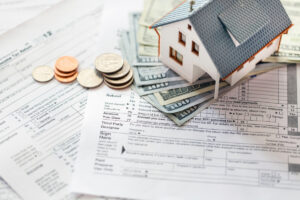
If you are getting ready to sell one of the top custom homes Greensboro has to offer, or you want to explore some homes for sale to make your own purchase, Smith Marketing is the right partner for the job. Get in touch today to learn more.
A Complicated Answer
You probably won’t be surprised to hear that the answer to the question of whether or not you have to pay taxes when you sell your house comes down to two words – it depends. As seems to be the case with everything related to paying taxes, there are plenty of complicating factors here that can determine your tax liability.
First, the good news – it’s quite possible, and maybe even likely, that you won’t have to pay taxes on the money you make from the sale of your house. If you file as a single taxpayer, you’ll be able to make up to $250,000 on the sale without owing federal taxes on the transaction. If you are married and filing jointly, that number doubles to $500,000. The amount you are considered to have made on the transaction – your “capital gains” – is determined by comparing the original purchase price to the sale price. As an example, if you purchased the property for $200,000 and then sold it for $350,000, you would have capital gains of $150,000.
Some Exclusions Apply
For the “average” home seller, the rules above will apply in terms of not having to pay taxes on up to $500,000 of capital gains on a home sale. With that said, there are some exceptions that would expose you to tax liability on this transaction. A partial list of those exceptions includes the following –
- If you didn’t live in the house as your principal residence, you will need to pay taxes
- Taxes are also due on real estate capital gains if you already claimed the relevant exclusion for your tax status (either 250k or 500k) within the last five years
- If you haven’t owned the property for at least two years within the last five, taxes will be due
The Best Advice
While you can use the information above as a good starting point to understand the tax situation around your home, the best thing to do is simply to retain the services of an accountant who can point you in the right direction. Spending the modest amount of money required to work directly with an accountant on this matter will be worth it in the end when you are sure that you’ve done everything correctly.
